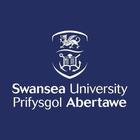

Location
United Kingdom
Qualification
Bachelor Degree with Honours
Fees
GBP24000
(2026)
Duration
4 Year(s)
Next intake
21 September 2026
Course info
- Scholarships
- Internships
Application Deadline
The application deadline isn't available Speak to an IDP counsellor for more detailed information
Further information
If you aren't eligible for the above entry requirements, you might have a chance to explore pathway options at Swansea University. If you want to find out more, speak to our counsellors.
THE World Ranking
301st / 1250
THE World RankingWhat our students think
We’ve haven’t received any reviews for this institution yet.
Your study abroad community
Discover genuine experiences and practical tips from IDP student ambassadors and peers worldwide.

Recommended for you
- THE World Ranking:801
- Undergraduate Masters
- Preston , United Kingdom
- Next intake:09/2026
- Entry Score: IELTS 6.0
- GBP17325 (2026)
- Bachelor Degree with Honours
- Nottingham , United Kingdom
- Next intake:09/2026
- Entry Score: IELTS 6.5
- GBP33000 (2026)
- THE World Ranking:801
- Bachelor Degree with Honours
- Preston , United Kingdom
- Next intake:09/2026
- Entry Score: IELTS 6.0
- GBP17325 (2026)
- THE World Ranking:301
- Bachelor Degree with Honours
- Dundee , United Kingdom
- Next intake:09/2026
- Entry Score: IELTS 6.0
- GBP23100 (2026)
- THE World Ranking:301
- Bachelor Degree with Honours
- Dundee , United Kingdom
- Next intake:09/2026
- Entry Score: IELTS 6.0
- GBP20600 (2026)
- THE World Ranking:601
- Bachelor Degree with Honours
- Liverpool , United Kingdom
- Next intake:09/2026
- Entry Score: IELTS 6.0
- GBP17400 (2026)
- THE World Ranking:801
- Bachelor Degree with Honours
- Preston , United Kingdom
- Next intake:09/2026
- Entry Score: IELTS 6.0
- GBP17325 (2026)
- THE World Ranking:801
- Bachelor Degree
- Preston , United Kingdom
- Next intake:09/2026
- Entry Score: IELTS 6.0
- GBP17325 (2026)
Your action plan
Step 1
Shortlist your courses
Choose the best three courses you’re most likely to pursue.
Step 2
Check your eligibility
Get an instant in-principle offer for courses with the IDP FastLane tag.
Step 3
Apply through IDP Live
Fill out the form once and use it to apply to multiple courses.
How does IDP FastLane work?
With the FastLane 'Offer in Principle', you'll know in minutes if you'll be accepted!
Select an institution and course
Create your academic profile
Submit your application for an 'Offer in Principle'
Your chosen institution(s) will send you a decision in minutes!
Get ready to apply with an expert counsellor
